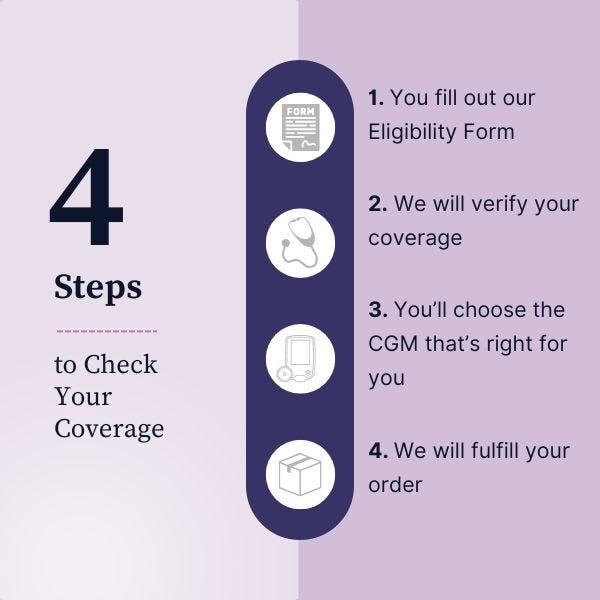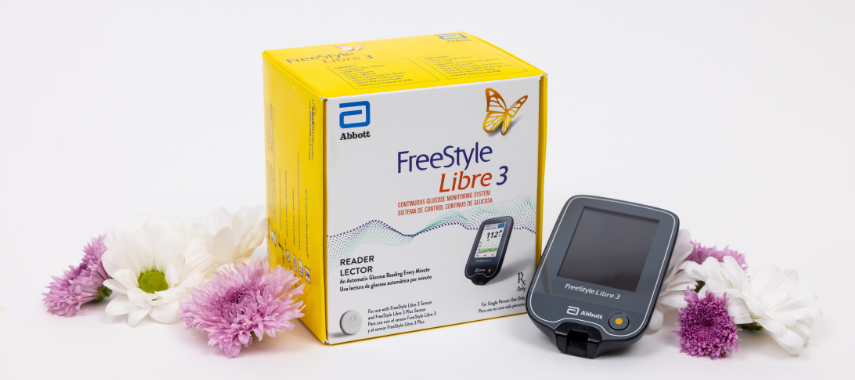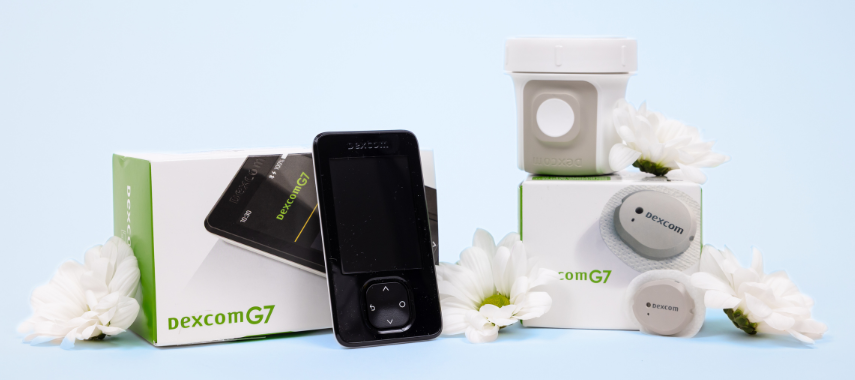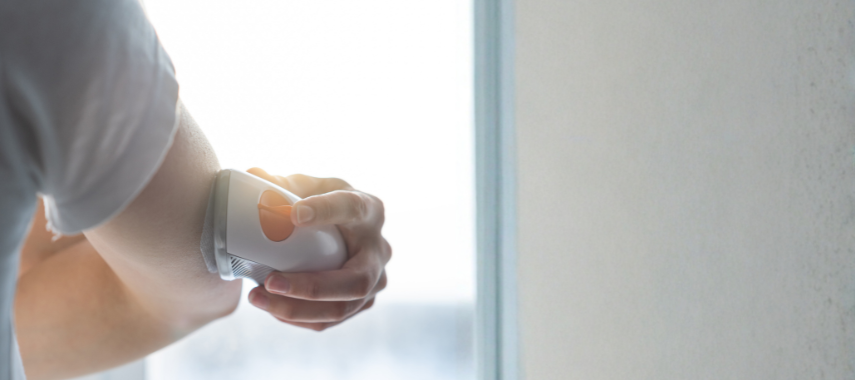Key Takeaways:
- Sugar headaches often happen when blood sugar levels are too high or too low, making them a common symptom for people living with diabetes.
-
Headaches caused by hyperglycemia and hypoglycemia have different triggers and require different treatments, so testing your blood sugar is important.
-
Using a continuous glucose monitor (CGM) can help prevent sugar headaches by tracking your glucose levels in real time and reducing spikes and crashes.

Sugar is such a large part of the American diet that it can be hard to avoid, and if you live with diabetes, you know this all too well. Unfortunately, you probably also know that after ingesting too much sugar, you can develop a bothersome and painful symptom of diabetes- a headache.
Also known as “sugar headaches,” this symptom can indicate problems with your blood glucose levels, such as hyperglycemia and hypoglycemia, which can be cause for concern.
The Role Sugar Plays In Diabetes
Sugar is naturally found in dairy products, whole-grain carbohydrates, vegetables, and fruits. This sugar is safe to eat for most people, as it's typically accompanied by fiber or fats found in the foods it’s in. Natural sugars are part of a healthy diet and give your body fuel for energy.
However, sugar is also frequently added to processed foods and drinks, such as sodas, bread, cookies, and sweeteners, among others. This type of sugar is referred to as “free sugar.”
The CDC recommends limiting sugar intake to less than 10% of your daily caloric intake. For example, if you eat a diet consisting of 2,300 calories per day, try to limit added sugars to around 230 calories.
Sugar is not to blame for type 1 diabetes, but it could play a role in type 2 diabetes. While sugar does not directly cause type 2 diabetes, it plays a role in the onset of weight gain that can very well cause the condition. Because the excess fat around the liver and other important organs is insulin resistant, it causes your pancreas to produce extra glucose, which can lead to type 2 diabetes.
What Is a Sugar Headache?
A sugar headache may start when your blood glucose level is either too high or too low in states of hyperglycemia and hypoglycemia. These headaches can occur if you have too much or too little insulin in your body and may be related to hormonal changes (epinephrine and norepinephrine). It’s possible that if you have type 2 diabetes, you may frequently experience migraine headaches.
Hyperglycemia Headaches
Headaches may be a sign of high blood sugar (hyperglycemia), but they may take a few days to occur. Hyperglycemia can be a dangerous condition if left untreated because it can cause nerve damage, blood vessel damage, and pancreatic damage. Other symptoms of hyperglycemia include:
-
Blurred vision
-
Confusion
-
Extreme thirst
Hypoglycemia Headaches
Hypoglycemia occurs when your blood sugar levels are too low, and a headache can be a sign of this state. Hypoglycemia happens quickly, so you’ll likely experience a hypoglycemic-related headache shortly after your blood glucose drops. Other symptoms of hypoglycemia include:
-
Chills
-
Dizziness or lightheadedness
-
Confusion
-
Blurred vision
-
Fatigue
-
Anxiety
-
Seizures
-
Fainting or loss of consciousness
Sugar Withdrawal Headaches
For those who do not have diabetes, sugar headaches can still occur when cutting sugar out of your diet. These headaches develop as a side effect from the withdrawal of sugar. Other symptoms of sugar withdrawal include cravings and mood swings.
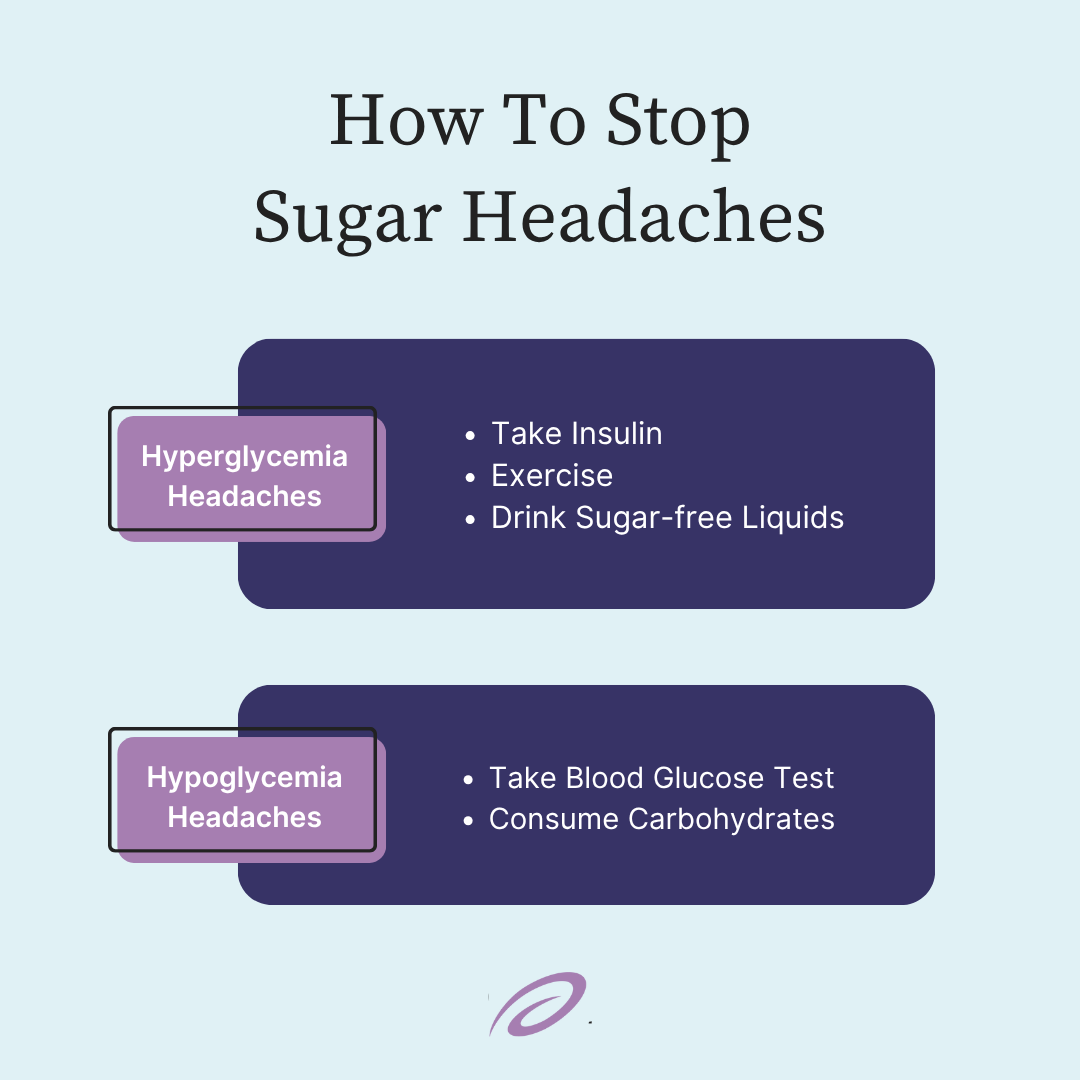

How to Get Rid of a Sugar Headache
There are several ways to get rid of sugar headaches, depending on the underlying cause of your headache. In situations of both hyperglycemia and hypoglycemia, you can take over-the-counter (OTC) medication, like ibuprofen or acetaminophen, to lessen the pain. If you’re experiencing a migraine, consult a healthcare provider for treatment.
Hyperglycemia Headache Treatment
To get rid of a hyperglycemia headache, you can lower your high blood sugar by drinking plenty of water to rehydrate and help your body flush out excess glucose. Additionally, engaging in light physical activity, if approved by your doctor, can help increase your body's insulin sensitivity and further help to reduce your blood sugar levels.
-
Take insulin (discuss with your healthcare provider beforehand)
-
Drink sugar-free liquids
Hypoglycemia Headache Treatment
If you experience hypoglycemia, you can treat it by consuming simple carbohydrates to raise your blood glucose levels. If left untreated, hypoglycemia can lead to seizures or coma.
-
Take a blood glucose test.
-
Consume the recommended amount of carbohydrates as advised by your healthcare provider to help raise your glucose levels back to a safe level.
Always consult your healthcare provider before taking OTC medicines, making changes to your lifestyle, or adjusting your insulin dosage. If you experience headaches and have diabetes, make an appointment with your diabetes specialist to discuss further preventative treatment.
Get A Continuous Glucose Monitor to Manage Your Blood Sugar
Instead of just treating painful sugar headaches, you can work to prevent them from occurring. A continuous glucose monitor (CGM) tracks your glucose levels in real-time, empowering you to prevent blood sugar spikes and crashes that cause headaches before they occur.
Aeroflow Diabetes can help you get a CGM covered by your insurance, Medicare, or Medicaid. Take control of your health by taking two minutes to complete our secure Eligibility Form. We'll review your coverage, and if you're approved, we'll ship your CGM and all the necessary supplies directly to you, so you can start preventing sugar headaches for good.
Disclaimer
Information provided on the Aeroflow Diabetes blog is not intended as a substitute to medical advice or care. Aeroflow Diabetes recommends consulting a doctor if you are experiencing medical issues or concerns.



